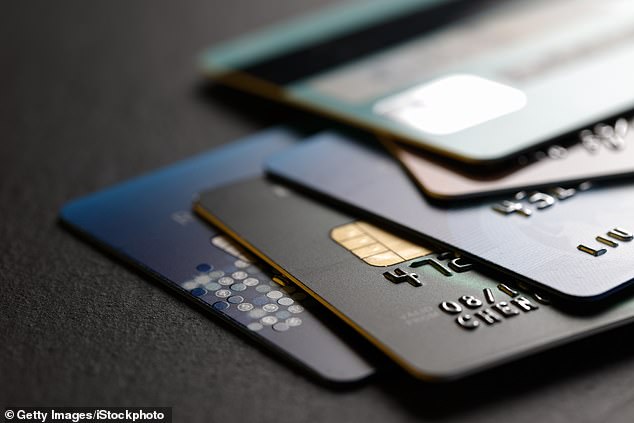Over half of fraud reported by firms in the UK now stems from their own customers, rather than professional fraudsters.
Known as ‘first-party’ or ‘friendly’ fraud, this is now the most common type of fraud reported by companies and accounts for 51 per cent of instances, a report by risk analysts Lexis Nexis Risk Solutions reveals.
First-party fraud is when customers give a company false personal or account information for financial gain.
This could include lying on a loan application, claiming a genuine credit or debit card purchase is fraudulent to get a refund, or claiming goods ordered online were not delivered when they were.
The findings were drawn from an analysis of over 104billion global transactions over the past 12 months, including across ten of the UK’s largest banks.
It represents a significant shift in the make-up of fraud attacks, with first-party fraud now the leading type in the UK – up 33 per cent on last year.

Friendly fraud: Firms report over half of fraud now originates from customers rather than scammers committing identity fraud
It has surpassed both account takeover fraud and scams which have been the dominant forms of fraud since 2020.
One in eight people admit to having perpetrated one or more types of first-party fraud within the last 12 months, according to research from fraud prevention agency Cifas.
Almost half of people believe it is reasonable to commit first party fraud, suggesting a normalised view of this type of fraudulent activity.
‘It represents a notable shift in global fraud patterns, with consumers now emerging as the single largest source of human-initiated fraud,’ says Stephen Topliss, vice president of fraud and identity at LexisNexis Risk Solutions.
First-party fraud is exacerbated by periods of inflation and the rising cost of living.
Increased liability on firms for shouldering losses through scams, driven by regulation, is also likely having an impact.
Buy Now, Pay Later (BNPL) providers and financial institutions are understood to be among the organisations reporting an uplift in first-party fraud.
Payments services giant Mastercard, which services the likes of NatWest and Lloyds Bank, forecasts that chargebacks – refund requests from debit and credit card holders for payments they don’t recognise – are set to rise 23 per cent by 2028.
This is due in part to the global rise in digital transactions.
But 45 per cent of the current chargeback volume is fraudulent, according to Mastercard, with 21 per cent of this being due to first-party fraud and 25 per cent being down to third-party identity theft.
This means it is quickly becoming one of the largest types of fraud merchants are battling.
Other forms of fraud still remain a threat, however.
Account takeover fraud – fuelled by phishing activity – accounts for 15 per cent of reported fraud in the UK. Common amongst this is password reset fraud, where a victim receives a password reset email and inadvertently surrenders their login details to a fraudster.
One in ten password reset attempts in the UK was a fraud attack last year, rising to over one in four reset attempts initiated on a desktop computer.
But more challenging to firms is the rise in cybercriminals embracing AI in sophisticated scams.
On a global level, the attack rate on communication, mobile and media companies has increased by 15 per cent year-on-year, and global financial services firms saw an 18 per cent uplift in automated bot attacks.
For this reason, Topliss believes we could now be at a tipping point for a ‘global fraud storm’ powered by AI.
He says: ‘While many organisations have improved their defences over the past few years, we also know that cybercriminals are embracing new innovative, AI-enhanced capabilities and we will likely see these extensively tested and executed over the coming months.
‘Our analysis of attacks over a longer multi-year period shows that significant attacks often come in waves and this latest set of figures could indicate the imminent arrival of the next, AI-enabled wave of global attacks.’
SAVE MONEY, MAKE MONEY

Isa offer

Isa offer
40% off account fees for six months

Fix energy bills

Fix energy bills
Check price cap beating deals with uSwitch

Fee-free Isa investing

Fee-free Isa investing
Free share and ETF dealing, no account fee
5.70% cash Isa
5.70% cash Isa
Rate boosted for three months, then 4.85%

Get £20 off an MOT

Get £20 off an MOT
£20 This is Money Motoring Club voucher
Affiliate links: If you take out a product This is Money may earn a commission. These deals are chosen by our editorial team, as we think they are worth highlighting. This does not affect our editorial independence. Terms and conditions apply on all offers.
